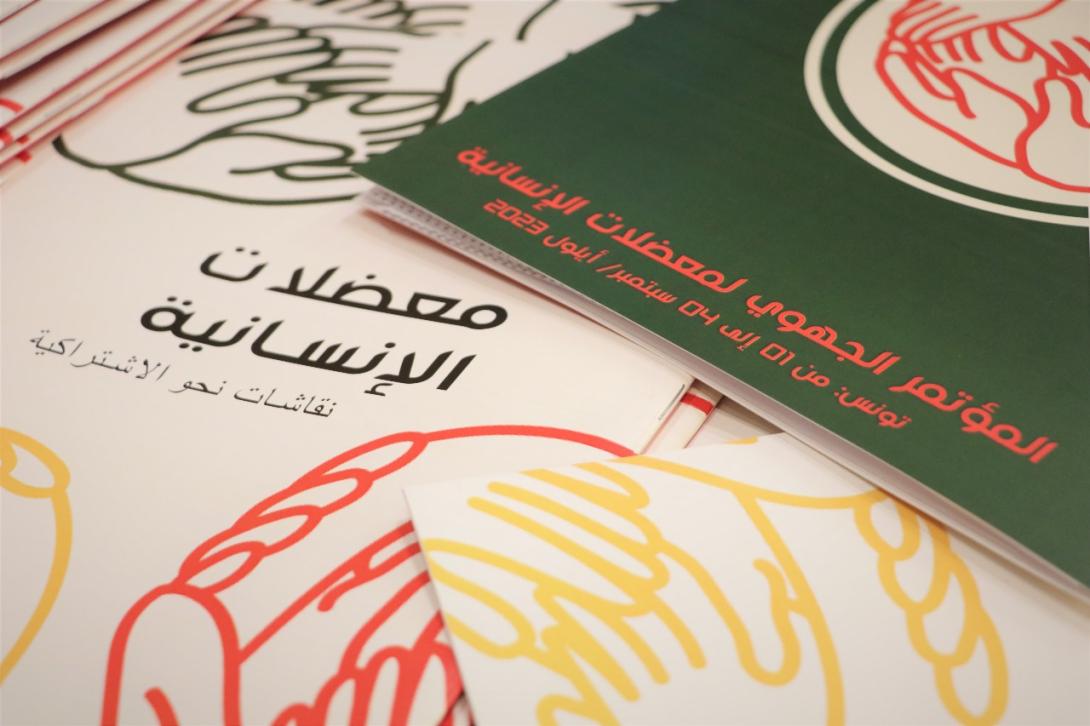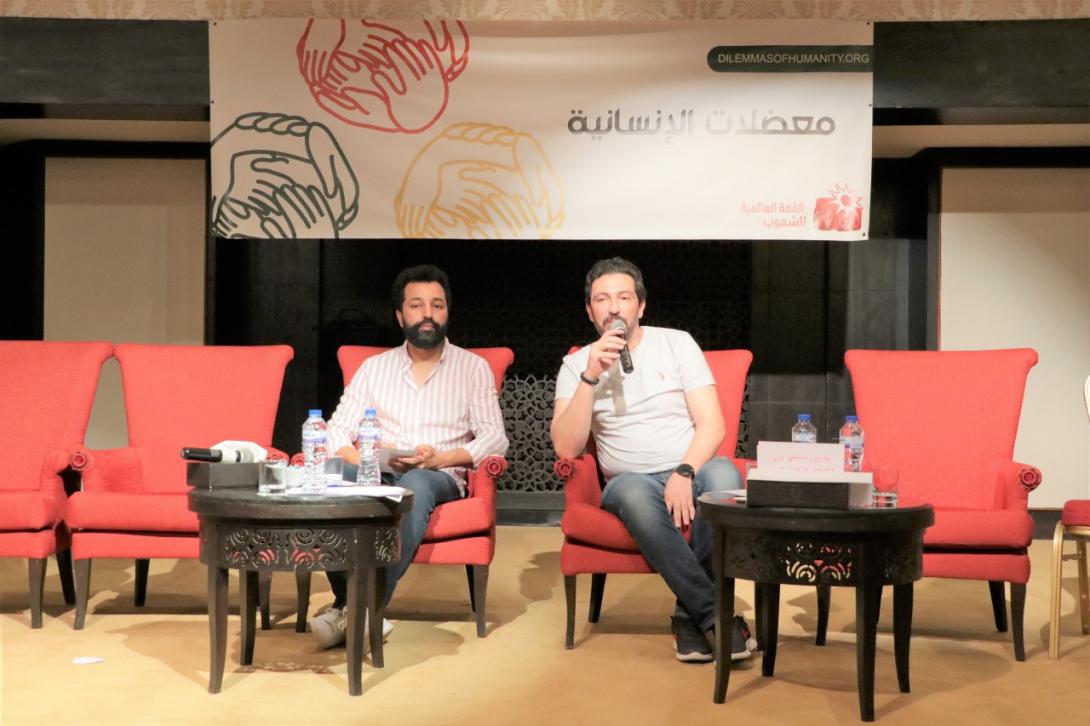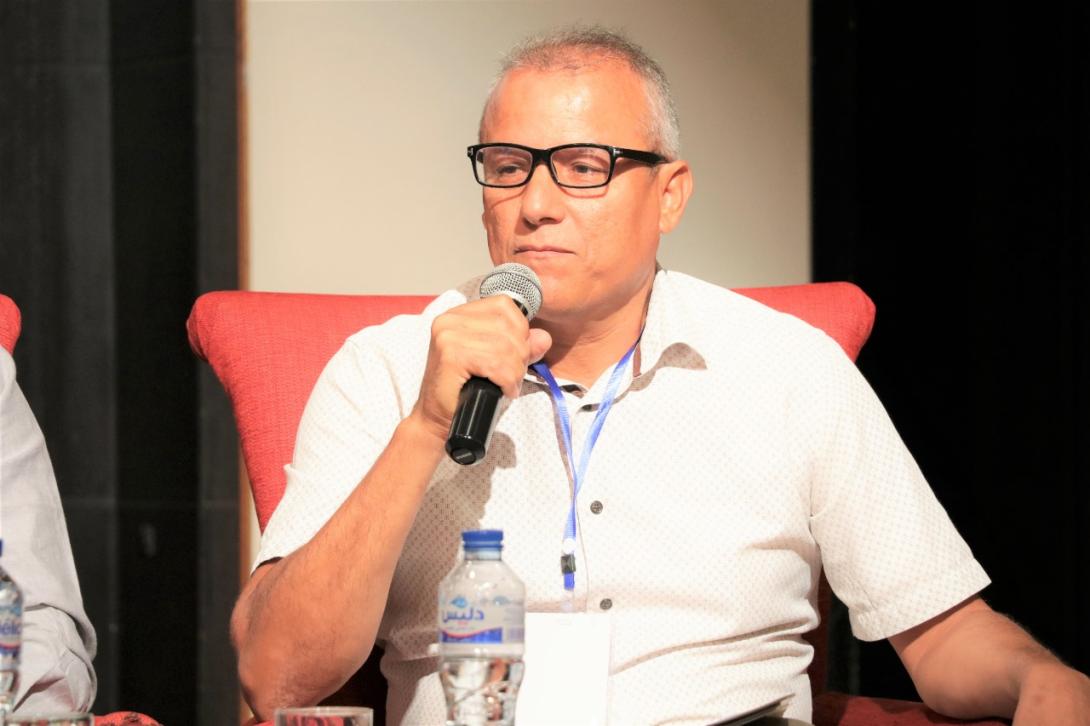Arab-Maghreb Dilemmas of Humanity Conference

People’s movements, political parties, and social organizations from the Arab-Maghreb region organized a successful Regional Conference on Dilemmas of Humanity. The conference took place from September 1st to 4th in Tunis, Tunisia. The event gathered around 100 activists, political leaders, and intellectuals representing 52 political and people’s organizations from 12 countries– Tunisia, Egypt, Morocco, Palestine, Yemen, Lebanon, Syria, Jordan, Western Sahara, Iraq, Kuwait, and Mauritania.
During the four-day conference, the main topics discussed were the struggle for youth liberation; the defense of the environment, food sovereignty, and the right to land; the struggle for women’s liberation; the organization of the working class; anti-Zionism and anti-normalization; the fight against political repression and the struggle for rights and freedoms.
These issues were discussed in working groups, where various countries and organizations had the opportunity to present the current local situations, analyze them, and propose actions. The consensus reached was the cornerstone for initiating participatory work with the various organizations present at the conference and among those unable to attend the debates. Multiple factors contributed to the inability of organizations to participate, including limitations on the transit of people between the countries of the region.

The work in these commissions was also crucial in addressing issues that directly and severely affect people's lives throughout the Arab-Maghreb region.
One of the most central issues is food sovereignty and the right to land, a problem that has caused the deterioration of people's living conditions. This is especially driven by the tendency of countries to prioritize policies that subordinate the country to those countries that dominate food production at the expense of satisfying their basic needs. One of the consequences of these policies is the marginalization of farmers. In response to this problem, organizations expressed the need for people’s organizations to adopt new measures to advance food sovereignty in each nation while simultaneously fighting to make land available to those who work on it.
The group discussions were also an opportunity to identify points of unity and address many of the common problems in a cooperative and unified atmosphere. This was reflected in the conclusions of the conference, which led to resolutions to impact regional policy, especially those related to the freedom of political prisoners and prisoners of conscience. In this sense, work is being done to form a joint committee that includes several organizations and associations working on issues of rights and freedoms. Additionally, the region is developing work to address the normalization of relations with the Zionist regime, which has been experiencing growth in the region.
Other lines of work proposed during the Arab-Maghreb Dilemmas of Humanity Conference included the organization of youth, especially as the region is witnessing an increase in unemployment among young people. Another axis is the organization of women in light of the escalation of violence and gender exclusion. Lastly, the organization of the working class was uplifted in light of the exploitation exercised by multinational companies and their negative impact on the living conditions of working men and women.

The final conclusions of the meeting demonstrated an important advance in the coordinated work and integration of the people’s organizations of the region and served as another opportunity for collective debate. This was manifested in the construction of an international perspective that seeks to promote the struggles and proposals from the Arab and Maghrebi peoples towards the International Dilemmas of Humanity Conference, which will take place from October 14 to 18, 2023, in South Africa.